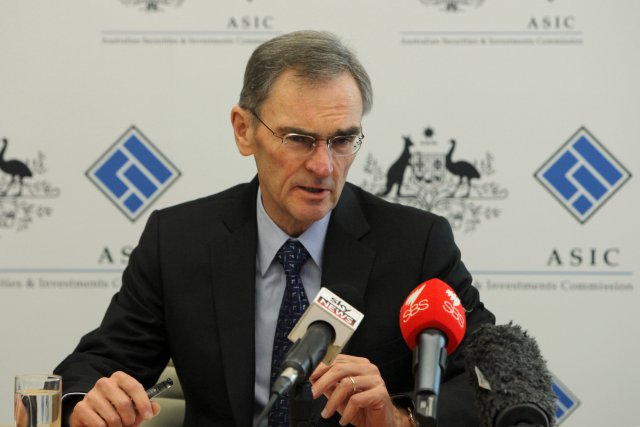
The revelations from the Panama papers continue to reverberate around the world. While the Australian angle has so far been a bit anticlimactic, it did kick off a discussion about the banking sector and tax havens.
Bill Shorten, in an uncharacteristic display of spinal-cord solidification, seized the initiative and announced that the Labor Party would conduct a Royal Commission into the banking industry if elected.
The reaction from the Australian Bankers Association and the Coalition was predictable: a tsunami of talking points as to why a Royal Commission into the banking industry would be the worst thing ever.
But among the usual suspects in opposition was Greg Medcraft, chairperson of the Australian Securities and Investments Commission (ASIC), which is the government agency responsible for regulating Australia's corporate and financial sectors. In an interview on Radio National, Medcraft stressed that while the decision to hold a Royal Commission would be "a matter for government" he downplayed the need for one, citing ASIC's existing powers as being similar to those of a Royal Commission.
However, the ability of ASIC to effectively tackle the problem must be called into question — and who better to answer than Greg Medcraft. Two years ago while speaking at a Walkley Foundation function, Medcraft was quoted as saying that "Australia is a paradise for white collar crime".
Since the election of the Coalition government in 2014, more than 200 jobs have been lost at ASIC due to budget cuts. Medcraft told ABC Online that the budget cutbacks had impacted on the amount of “proactive surveillance” that was being undertaken by ASIC. He also said the corporate regulator had just 25 officers to oversee and regulate more than 30,000 financial planners.
Indeed, one of ASIC's more high-profile cases in recent years was the prosecution of environmental activist Jonathan Moylan for distributing a fake press release that caused the share price of Whitehaven Coal, to crash temporarily.
"We went after him because we actually wanted to make an example of Jonathan Moylan because we don't want people disrupting markets," Medcraft was quoted as saying. "People lost money from what he did. Is that fair?"
Plenty of people have lost money from the unethical practices of those in the financial planning and banking sector and the seeming unwillingness or inability to investigate them due to lack of resources is a cause for concern.
One advantage of a Royal Commission, should Labor actually win the election and go through with it, is that the proceedings would be conducted in the public view, whereas an investigation by ASIC would be behind closed doors. This is exactly what the powers-that-be are seeking to avoid — a public exposure of the greed and corruption inherent in the capitalist system.
While such an exposure would certainly be welcome, it would not be enough on its own to bring about the systemic change needed to create a fairer system. That the head of the agency in charge of regulating the sector is downplaying the issues and not actively seeking greater funding to do what is required should make that apparent.
This is why Green Left Weekly is so important. Not only do we shine a light into the injustices of the system we also show the alternatives and how the 99% can and are organising for their own interests.
Green Left Weekly is a not-for-profit news outlet and while we are operating within the capitalist system we rely on our subscribers, supporters and fundraising to help keep going. If you like what you read in Green Left Weekly you can help us continue this work by donating to the GLW Fighting Fund on the toll-free line at 1800 634 206 (within Australia). Donations can also be made to Green Left Weekly, Commonwealth Bank, BSB 062-006, Account no. 00901992. Otherwise you can send a cheque or money order to PO Box 394, Broadway NSW 2007.
Like the article? Subscribe to Green Left now! You can also like us on Facebook and follow us on Twitter.